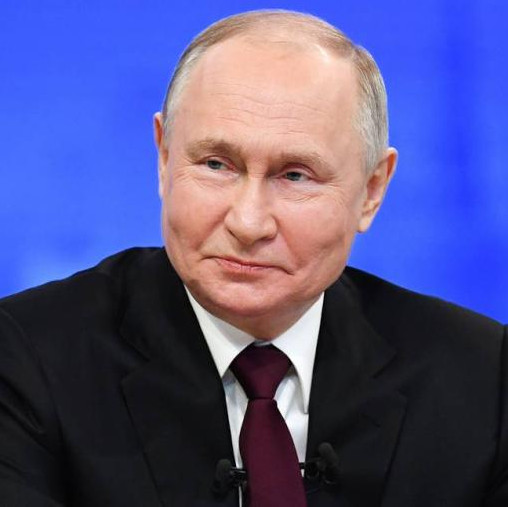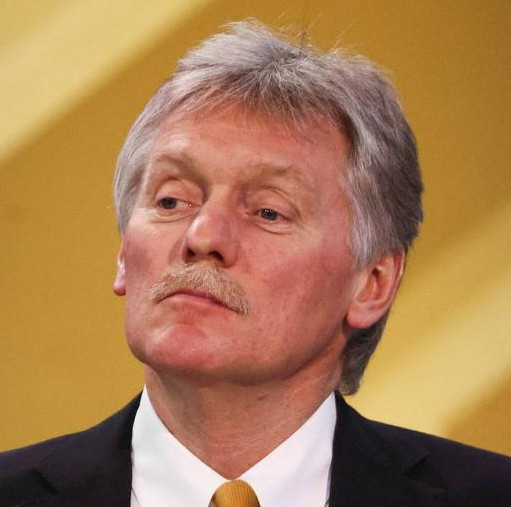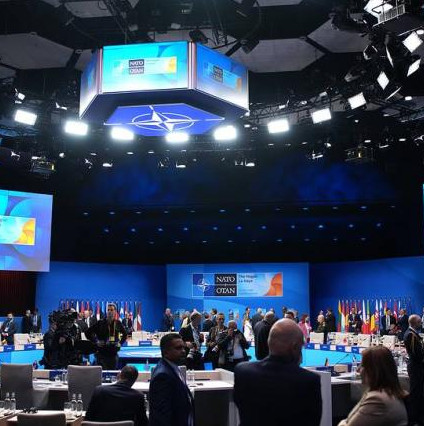
In June, the new President of Ukraine made his first foreign visits to Paris and Berlin. The previous trip to Brussels was more of a symbolic nature, as Zelensky's negotiation partners at European institutions will leave their offices very soon.
The Zelensky-Merkel meeting intrigue was how the acquaintance of the two heads of state would take place, given the provocative history of their relations. During the election campaign in Ukraine, the German Chancellor had made it clear to prefer Poroshenko. It was him, not Zelensky, she accepted in Berlin prior to the second round of Ukraine's presidential elections. Most observers in Europe noted the clear-cut message of Frau Bundeskanzlerin's choice.
The degree of success of this demonstrative move on the part of Germany and its impact on the vote outcome in Ukraine is a separate issue that isn't perhaps of much interest for anyone. One way or another, President of France Emmanuel Macron behaved more correctly back then. In Paris, he met with both incumbent leader Poroshenko and presidential candidate Zelensky, which let the experts talk about France's balanced position in compliance with all the diplomatic standards.
And finally, the new Ukrainian President has arrived in Berlin. The purpose of the visit was the Minsk agreements implementation and as a result, Merkel and Zelensky expressed the common opinion that progress in meeting the agreements had not been achieved, for which reason sanctions against Russia cannot be lifted. Both sides preferred not to elaborate, even though it was the details that could highlight the inconsistency of their positions.
Sure enough: Merkel believes that sanctions against Russia can be eased in case of progress in implementing the Minsk agreements and, what is more important, both Ukraine and Russia should bear responsibility for the lack of progress. Zelensky implies quite a different thing: even if some progress appears, sanctions against Russia should not be lifted in any case.
In a similar way, the parties develop a concern about the Nord Stream–2 project. Here they tried to avoid specifics as well. All the more so as Merkel wants the gas pipeline to built as soon as possible, while Zelensky opts for its nonexistence.
In other words, if the key negotiation purpose was to avoid disputes, the parties had certainly succeeded in their intentions. Zelensky's desire not to make heavy weather of the trip is pretty understandable – he needs time to slice and dice and perhaps to establish some new foreign policy lines. But why did Merkel consent to such a coordination of roles? That doesn't obviously happen by accident: literally every word is weighed when the Federal Chancellor's public statements are being prepared.
The following thing is evident. Merkel's desire to skirt contentious issues is above all internally motivated; Ukraine itself has nothing to do with this. The German Chancellor is sending out signals to both supporters and opponents of sanctions against Russia and the development of large-scale cooperation with the country. Thus, the agenda of German-Ukrainian ties proper has a subordinate value and is shifting towards the far more important issue of how to develop Germany's relations with Russia.
German society is actually split in this regard. Anti-Russian activists like, for instance, Deputy Chairman of the Free Democratic Party (FDP) faction in the Bundestag Alexander Graf Lambsdorff, urge the German government to carry out the idea of introducing a UN mission to control the Ukrainian-Russian border. The German hawks can be satisfied: it is Moscow alone that Merkel holds accountable for implementing the Minsk agreements, at least after Zelensky's visit.
In turn, the heads of government of East Germany's federated states do not mostly approve of sanctions against Russia. No offense meant: Merkel tells them that progress in carrying out the Minsk agreements may result in lifting anti-Russian sanctions. Finally, the Left party goes still further and urges to take serious steps towards the rebels in the east of Ukraine. Party members should be comforted by the thought that they are heard either. Frau Bundeskanzlerin has repeatedly made it clear that both Russia and Ukraine are responsible for what is happening.
The give-everyone-a-good-dressing-down position implies only one thing: a meaningful agenda on Ukraine does not simply exist. Zelensky's visit is just a tribute to diplomatic etiquette. The only progress is that Germany is handing the Normandy format leadership over to France. Consultations of advisers to the heads of state and government of the Normandy Four are scheduled for July 13. The summit itself, as Zelensky desires, will be held after the parliamentary election in Ukraine. Macron offered to gather in Paris.


